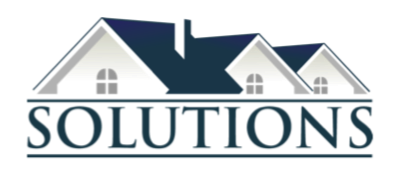We get asked lots of questions about when the best time to list a home is – we’re heading into a traditionally quiet time of year – but there are other ways to make sure your listing gets noticed.
We’ve talked about ways to spruce up your home so it stands out, from curb appeal to a sparkling decluttered interior, but we also want to emphasize that pricing is one of THE most important factors to consider as well.
In most real estate markets, if a home is priced correctly, a Seller should receive at least one offer within the first two to three weeks. If your local real estate market is currently in the midst of a Sellers market, you should expect an offer within the first couple of days on the market.
Pricing a home correctly from the beginning is critical to getting it sold quickly. The most common reason we’ve heard that a house HASN’T sold is because it’s overpriced.
It’s incredibly difficult to come back from the mistake of overpricing a home. If you price your home too high in the beginning, you’ll likely end up with less money in your pocket, which is obviously not the goal.
It’s possible to overcome such an error, and a wise agent will recognize this and work with the Seller to correct it immediately.
Below are seven ways to tell if a house is overpriced for the market.
1. The home is priced higher than the neighborhood comps
In a neighborhood it’s fairly easy to tell if a home is overpriced if it sports a listing price that is significantly higher than those around it – we’re talking $50-$100K higher.
A Seller might have spent a great deal of money on renovations and top notch appliances, but if the surrounding houses look the same from the outside it will be hard for a Buyer to justify wanting to spend the extra money.
2. The Sellers hired an agent who suggested they price the home too high.
Selling a home is often based on the emotions of the Seller and there are agents who will inflate a listing price to get a listing, even though the comparative market analysis clearly shows the house will not sell at that price.
It’s critical you understand how the prospective listing agent came up with the listing price of your home. If you interview three agents and one of them suggests a price that is $30,000 higher than the others, you need to know how they came up with that number.
3. There have been few showings (or none)
Even if you live in a popular neighborhood and are convinced your house is a special find, the numbers always speak – quite simply, if you have few or no showings, the house is overpriced and a price adjustment will have to be made to draw in buyers.
4. No offers
If you haven’t received an offer after a couple of months (even a couple weeks in a decent market), this is a great way to know your home is most likely overpriced.
5. Very few Internet Inquiries
Most Buyers these days first start looking at houses on the Internet. They punch in their search parameters and look at the results – very rarely will they look at houses over their price range, even if they really like the neighborhood.
6. Poor showing feedback
This is a biggie – if you don’t get any showings or feedback it will take longer for the Seller to realize price is the problem.
Feedback is important because it allows a Seller the chance to correct things a Buyer may object to, like paint colors that are too “bright” or awkward floor plan flow. Other agents will often note if they think a home is overpriced, which gives a Seller the opportunity to make an adjustment.
7. The listing expired and didn’t sell
One of the most frustrating things for a Seller is when the neighboring homes are selling and theirs is not. If you’ve received several offers that you would consider “low ball” you may need to reconsider whether your price is appropriate.
Possibly the most obvious way to know a home is priced wrong occurs when it doesn’t sell and expires after six months.
Every home has a price tag that is acceptable to Buyers. If a home’s listing price is relatively close to the number a Buyer considers fair, it will sell and not expire, period.

